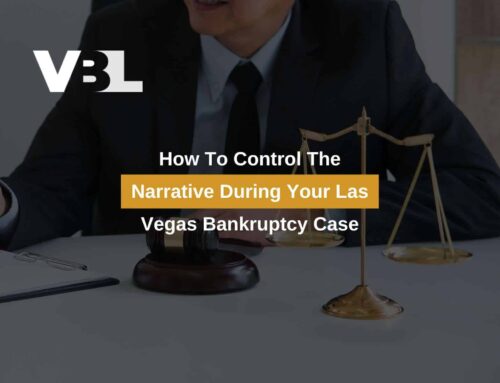Filing Bankruptcy in Vegas and the Impact of Social Media on your BK Filing

Don’t Let Social Media Destroy Your Bankruptcy Case
When you file bankruptcy in Nevada, you will be submitting a petition to the court that gives an extremely detailed picture of your financial situation. Usually an attorney known as a trustee will be assigned to your case.
Some of the duties of a bankruptcy trustee include: reviewing your petition for accuracy, and investigating if they suspect you are hiding assets and income. Therefore, oversharing on social media, especially on a public account, will give your trustee more opportunity to find discrepancies between what is listed in your petition and what is the actual situation.
If the trustee discovers important information through social media that was undisclosed in your petition, there are a number of ways your case will be negatively impacted. There are limits to cash advances and luxury credit card spending in the time period leading up to your bankruptcy, so this debt may be excluded from discharge, or you may be required to repay the amount before any of your debts can be discharged. The trustee may seize assets that weren’t in your petition and sell them to repay your creditors, or your case may be dismissed. The trustee may also sanction you, adding additional fines to your undischarged debts. You may serve prison time for lying in your petition if you are convicted of bankruptcy fraud.
Social Media Errors Frequently Made by Arizona Bankruptcy Filers
It’s no secret that many people use social media to flaunt their wealth and lavish lifestyles, or at least pretend to.
You should avoid posting the following if you are in an active bankruptcy, or are at least considering it:
- Vacation posts, including airline travel, hotels, scenery, etc.
- Shopping sprees, especially if you bought designer or luxury products
- Screenshots of your financial accounts or investments
- Posts about your second job, including Uber and Lyft
- Selling items through social media
Three Major Ways Social Media can Disrupt your Bankruptcy
When reviewing your Nevada bankruptcy case, your trustee may find evidence of three things that can commonly be exposed on social media. The first is exposing spending in excess of limits set by the Bankruptcy Code. Trustees will be looking to make sure you weren’t running up credit card debt right before your bankruptcy. Luxury purchases in the 90 days before your bankruptcy filing can’t exceed $725, and cash advances in the 70 days preceding your bankruptcy can’t exceed $1,000. Posts about vacations, nonessential purchases, and nights out on the town can give the trustee reasons to delve further into your financial records, and you may be required to repay these debts before or after the rest of your case proceeds.

Thus, if you paint a full picture of your life through your social media, you probably post about your job. If you start a new job, or have a side gig that you failed to list in your petition, the trustee will know that you have undisclosed income. This will cause delays in your case, or possibly get it dismissed. If you are in a Chapter 13, your monthly payments may be raised if the trustee discovers additional undisclosed income.
Social Media Knows where your assets are.
You may find it easy to slip up and post about things that can be harmful to your bankruptcy case without realizing. Even when you aren’t posting about your property specifically, your belongings may appear in the background of your posts.
A famous example of someone slipping up and getting in trouble in bankruptcy court is Abby Lee Miller of Dance Moms fame. The dance teacher filed for bankruptcy in 2015 to reorganize her dance studio, but failed to disclose $775,000 of income in her petition. As a public figure, the trustee was able to discover the discrepancy through her television show and social media accounts. She was sentenced to one year and one day in prison, and ordered to pay $40,000 in fines.
How to Prevent Social Media Mishaps In Your Bankruptcy
The easiest way to prevent social media from damaging your bankruptcy case is by remaining off it altogether, but this may not be feasible for you. Alas, you should avoid posting anything about your financial situation and assets while you are involved in a bankruptcy filing in Nevada. Therefore, if you own your own business and need to post on social media, you should run questionable posts past your bankruptcy attorney first. You should also never post pictures of luxury objects, even if you don’t own them, during a bankruptcy. Our Vegas Bankruptcy Law Team can assist you with all of your debt relief needs.
How a Las Vegas Bankruptcy Lawyer Can Assist.
A Las Vegas Bankruptcy Lawyer will make sure that every step of your bankruptcy is completed correctly, and that the trustee doesn’t seize any of your assets or require payments of certain debts that would otherwise be eligible for discharge. Your Vegas bankruptcy attorney will advise you on state exemption limits, as well as what information is required to be included in your petition.
Although, the cost of an attorney may seem daunting if you’re considering bankruptcy, it may save you more in the long run if you avoid mistakes that result in asset seizures and extra repayment. Our Las Vegas and Henderson bankruptcy law firm also offers affordable post-filing payment plans to qualified clients. To learn more about our payment plans, and bankruptcy in general, call today to schedule your free consultation with the Law Office of Erik Severino. Erik is an experienced Nevada bankruptcy attorney. Erik and his staff will guide you through the Nevada bankruptcy process, reducing your stress and negative consequences as much as possible. Get started today with your free consultation!
















